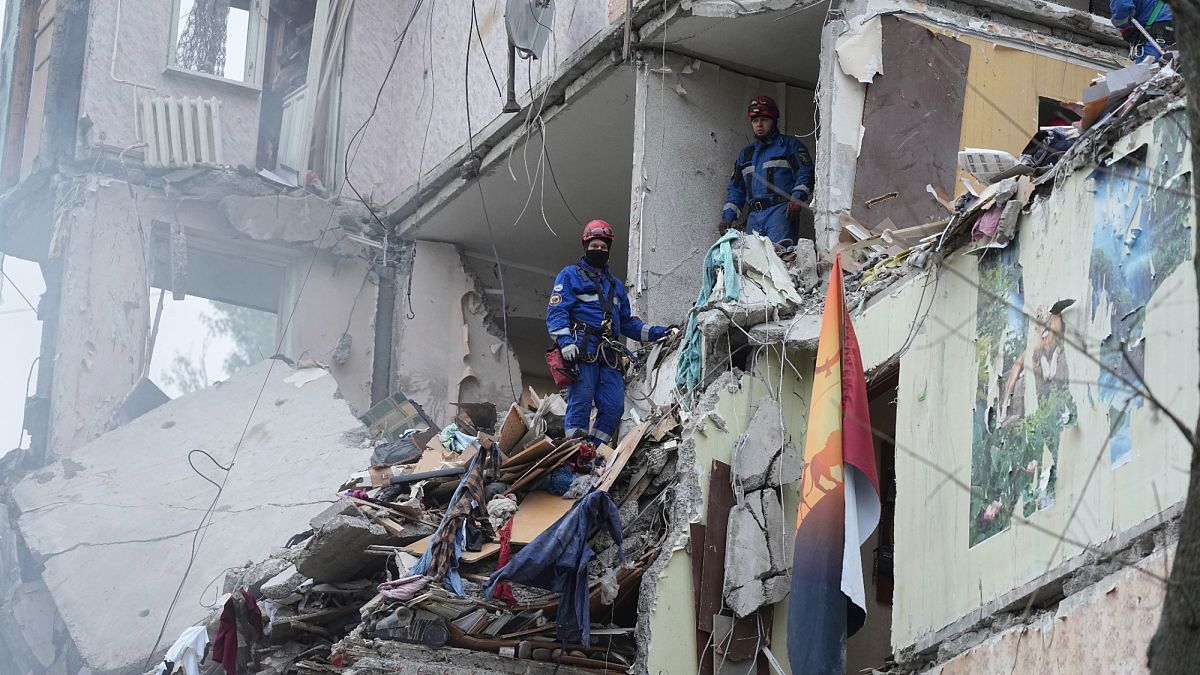

In a week marked by both sorrow and strife, regions across the world have been grappling with the impacts of conflict and civil unrest. From the streets of Kyiv to the corridors of power, events have unfolded that underscore ongoing tensions and the search for peaceful resolutions.
In Ukraine, renewed missile and drone strikes have led to tragic consequences in Kyiv. On Thursday, a missile attack claimed the lives of six people, including a child, and resulted in injuries to 52 others. The onslaught severely damaged a nine-story building, prompting swift action from rescue teams. This incident adds to a series of recent attacks, highlighting the ongoing conflict between Ukraine and Russia, which has seen multiple strikes on Ukrainian military facilities over the past months.
In Chernihiv, Ukraine, the unrest continued with a strike on an army training center resulting in the deaths of three Ukrainian soldiers. Such attacks represent the fourth in a string of assaults over just five months, pointing to a persistent threat to military and civilian targets alike. The Ukrainian government is seeking to address these challenges while bolstering international support in the pursuit of peace.
Elsewhere in the world, social unrest in Angola has led to tragic outcomes. Protests against rising fuel prices have seen security forces clashing with demonstrators, resulting in at least 22 fatalities. Angola’s status as one of Africa’s largest oil producers juxtaposes sharply with its reliance on costly imports of refined fuel, fueling public discontent and sparking calls for reform.
In another corner of the globe, heartbreaking scenes are playing out in the Gaza Strip. Thirteen-year-old Ahmad Zayed mourns his father, one of the many victims of ongoing Israeli strikes and gunfire. The incident underscores the deep-seated tensions in the region, sparking global conversations about humanitarian aid and potential pathways to peace.
Amid these tensions, Belgium has taken a firm stance by referring complaints against Israeli soldiers to the International Criminal Court (ICC) over alleged war crimes. This step came after a pro-Palestinian group identified soldiers at a Belgian music festival, further spotlighting international concerns about the conflict and its human cost.
In a related world development, Swedish Prime Minister Ulf Kristersson has called on the European Union to exert economic pressure on Israel by freezing the trade component of the bloc’s association agreement with the country. This move aims to prompt Israel to increase its humanitarian efforts in Gaza. At the same time, there is an international call for Hamas to release hostages, and for increased pressure on the organization to ensure it does not play a future role in governing Gaza.
These events reflect a multifaceted global crisis marked by political decisions and humanitarian concerns. As nations and leaders around the world deliberate over responses and resolutions, the path forward remains complex yet hopeful for a world yearning for stability and peace.
Source: {link}
